The Legend
The Legend - Don Mericle by Steven Libbey
Where does anything start? For one of the most incredible South Eastern Wisconsin antique bottle and stoneware collections the starting point is a pinpoint in time. The beginning was in 1830 when a New Yorker decided to join so many Americans heading west into the Frontier seeking a new and better life... Maybe. Or it might be 1839... Yes... 1839 for sure. In 1839 a home was built in downtown Milwaukee on Commerce Street. (Now Canal) Really though, how could THAT be the beginning of a modern collection? It has to have been 1848 when Levi Blossom, became the owner of Milwaukee's Eagle Brewery. Or, was the beginning of this awe inspiring collection the Hindenburg disaster coupled with the completion of construction of the Golden Gate Bridge in 1937? The birth of the curator of this mighty collection in 1937 ascribes particular significance to 1937.
Maybe the origin of this collection is 1944 while America was deep in the despair of World War II. A boy of just seven years of age would later recall first noticing that 1839 constructed home in 1944. Our beloved collector curator recalled an attraction to something old of cultural significance for Milwaukee and Wisconsin in 1944... At just seven years of age! Interesting to note; in 1944 most of our curator's entire collection would not have been technically antique with only the house making the 100 year old definition of ‘antique' mark. There can be no mistake of the absolute significance of 1951 with the premier of "I Love Lucy" bringing television to the cultural forefront in America. Even more important to the origin of this collection; in 1951 our curator recalled his irresistible attraction to old stoneware first awakened as he walked past a Milwaukee Antique store.
While the origin of this magnificent collection may or may not be perfectly clear, those years and so many between and after are forever significant to this collection and therefore all Wisconsin stoneware and bottle aficionados. What are collections but for people? In spite of morbid rumors started by one famous Wisconsin bottle collector, you can't take them with you. We are all just caretakers for our point in time.
Don Mericle fancied becoming one of those old eccentric New England codgers. To know just a piece of Don's collecting history is to know he was a success at that and in many regards. Moving a 130 year old house to preserve a piece of Wisconsin's history puts our curator at the absolute finial top of the eccentric Wisconsin collector list. The house Don noticed when he was a seven year old boy was moved to where Don admired it, for the first time, after being foreclosed on by one of Milwaukee's founding fathers, Byron Kilbourn. As a child Don found his future home near the Best House just blocks from the Pabst Brewery. (All interesting twists on Don's story when you see his collection.) The 1844 move was significant in giving the house a vital reprieve out of the way of development for another 125 years. In 1969 while all of Wisconsin and America focused skyward hoping to catch a glimpse of a man on the moon, Don quietly prepared and implemented a move of individually epic proportions. With just three months to spare before a wrecking ball would bring it down Don moved that same house a second time nearly thirty miles west to the Village of Summit. By 1969 Don was an advanced collector of the earliest period of Wisconsin's ‘settled' history. This ‘collectable home' was destined to become the setting and maybe again an inspiration for a historic lifetime accumulation of whatever bits and pieces of Wisconsin's past Don found interesting.
Wisconsin Stoneware and bottle collectors who have seen it are well aware of the improbability of the collection Don assembled. For Don collecting was never about money or investment. Don collected whatever he found interesting or desirable. It is impossible to ignore the huge favor people like Don have done for the preservation of the history of Wisconsin and Milwaukee. Many of Wisconsin's earliest buildings have been demolished to make room for structures destined to eventually be nothing more than footnotes in the history of the space they occupy.
To walk through the old home is to take a step back in time. So many artifacts of Milwaukee's, Wisconsin's and America's past adorn the space. Early (period) Wisconsin and American artwork, wonderful one time utilitarian objects, now historic decorative art, catch the eye with every glance. One can imagine Byron Kilbourn grabbing an oil lamp off the kitchen table and making the narrow turn ducking his head to avoid the low ceiling as he descended into the basement inspecting his newly acquired foreclosed property in 1844. For a Wisconsin stoneware collector the same descent is made with the aid electrical lighting. Interestingly, the inner historian in Don took great care to be sure any modern improvements could be reversed should someone someday wish to completely restore the property to its originally constructed state. Don's collection occupies a great deal of the basement. If such a wondrous grouping has "features", Don's collection features many extremely rare artifacts. Even an Old Cottage Inn addressed packing crate used in original construction was put right back where it was originally installed. The Old Cottage Inn burned down three years before Wisconsin became a state in 1845!
That same descent Kilbourn likely made 166 years ago takes a Wisconsin stoneware collector to nirvana. Nowhere else are so many ancient and unique Wisconsin pieces amassed. One of a kind bottles sit in center shelves in a room so full of antique Wisconsin stoneware the collection cannot all be viewed without removing contents from the room. Many of the pieces have been handled or seen by just a few people in their 150 year existence. By simply collecting what he found interesting or liked Don preserved a significant piece of all known antique Wisconsin decorative art and Wisconsin utilitarian art for future generations to find interesting and enjoy in their time.
What would a curator of a collection who is so motivated he moved an antique house thirty miles tell you about collecting? What piece of advice might you expect from Don if you could pin him down for information? Don would tell you, ‘Collect what you like. Monetary value is not the key to a truly enjoyable collection.' Don would tell you, ‘Learning and knowing the history of the objects is what truly gives them and collecting value.' The catalyst for Don's collection never was acquiring the rarest or most valuable object. Don wanted to preserve and protect the history the objects represent. To Don the objects were a foothold into documenting, recording and preserving the history of the society and people who produced and utilized the objects.
Don had joked about being taxidermied and put in a prized antique rocking chair for posterities sake. Of course the chair would need to be ‘gently' and likely ‘reversibly' modified to have a motor. Don didn't like to sit still. Don was also rumored to have said he would be buried with what I call the Holy Grail for Wisconsin antique bottle collectors, The Blossom's Badger Ale. Seems Don loved to gently tease the people desirous of his unique, historic treasures. Don cherished his family and family history. The home Don moved, he moved just a few miles from the land his great grandfather migrated from New York for in 1830. Don now resides In the Summit Wisconsin cemetery on the very edge of the land his great grandfather inhabited 180 years ago. Having succumbed to acute leukemia Don passed on December 3rd 2010.
Included in Don's legacy are a family he dearly loved, a collection that should it ever be disassembled will likely never be rebuilt and the rediscovery coupled with the sharing of so much information to the benefit of everyone who shares his passion for the information the objects hold secrets of.
If you want to see pieces of Don's collection go to the galleries of mrbottles.com. Don graciously showed and allowed pictures of many unique collectables so that others could experience them too. I will always be personally grateful for the gracious trust in handing over what could not be replaced for an unknown and inexperienced collector to examine, understand and feel the history emanating from.








